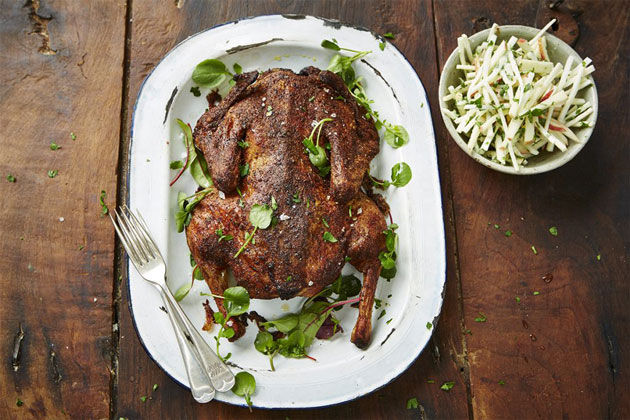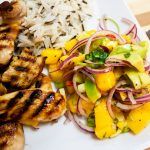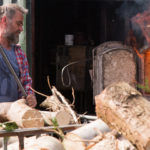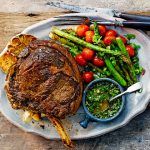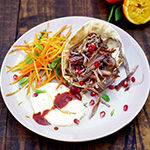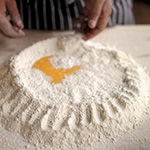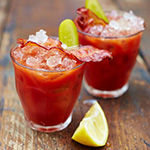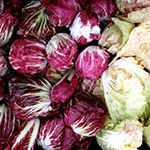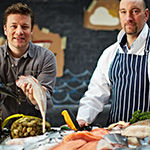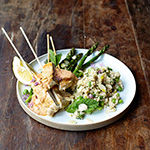One of Jamie and Jimmy’s Friday Night Feast campaigns this year is to promote better duck farming standards – did you know that many British farmed ducks don’t have any access to water? Here, Daniel Nowland, head of Jamie’s Technical Food Team, explains how ducks are reared and how we can make a difference.
‘A duck out of water’ is a phrase we’re all familiar with, but sadly this is the reality for the vast majority of ducks reared in the UK. Nearly all duck products on our supermarket shelves have been reared in systems that prevent ducks from behaving naturally.
How are most ducks reared?
The majority of commercially farmed ducks in the UK spend their lives indoors in large barns. The barns are not bad places, and most will have plenty of fresh air, natural light, and lots of deep straw. However, what they lack is any kind of water for the ducks to get into.
This is mainly because in large commercial farms, the producers want to keep the barn as clean and dry as possible. Adding the provision of bathing water adds cost and complexity, so it’s simply easier not to bother. Most commercial barns will have troughs of water for drinking and preening, but these will be covered with mesh to prevent the ducks from climbing in.
The biggest commercial duck producer in the UK used to offer standard and free-range duck. However, today UK supermarket shoppers can only buy standard welfare. This lack of choice means it’s harder to vote for better welfare standards with our shopping baskets, and we need to campaign for fundamental change to the system before the meat reaches our shelves.
Why is water important for ducks?
As active animals, ducks are designed to live in or near to water. They have webbed feet for swimming, and one of their strongest natural behaviours is to preen themselves while in the water.
It is normally considered cruel to prevent an animal from its natural behaviour. Which is why at Jamie Oliver we believe it’s vital for farmed chickens to have perches, and pigs to have materials to root in – at the very least. For ducks, it’s about being able to splash and preen in water.
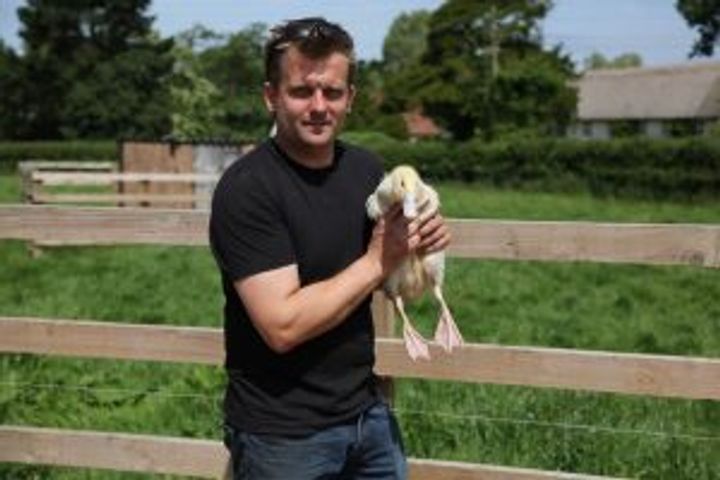
What’s changing?
As Jamie and Jimmy explain on Friday Night Feast, some British farmers are giving their ducks exactly what they really want – open water!
Creedy Carver is a West-Country producer that has developed its poultry farms with the welfare of ducks in mind. Each morning, when the shed doors are opened, the ducks march down to a few small ponds, where they take it in turns to climb in and have a splash. It’s fantastic!
This daily splash keeps the ducks happy and healthy, and encourages them to move about outside. As a result, you get duck with incredible flavour, and you can enjoy it knowing the bird has had a decent life.
How can we help?
Next time you’re buying duck, ask your retailer for a free-range bird. Remember: if there’s no mention of free-range on the pack, the chances are the animal has lived indoors all of its life.
If your retailer doesn’t stock free-range duck, you can email or Tweet them to ask them to look at supporting these higher-welfare standards.
Watch this week’s Jamie and Jimmy’s Friday Night Feast to see great duck farming standards in action. Catch the show every Friday at 8pm on Channel 4.
